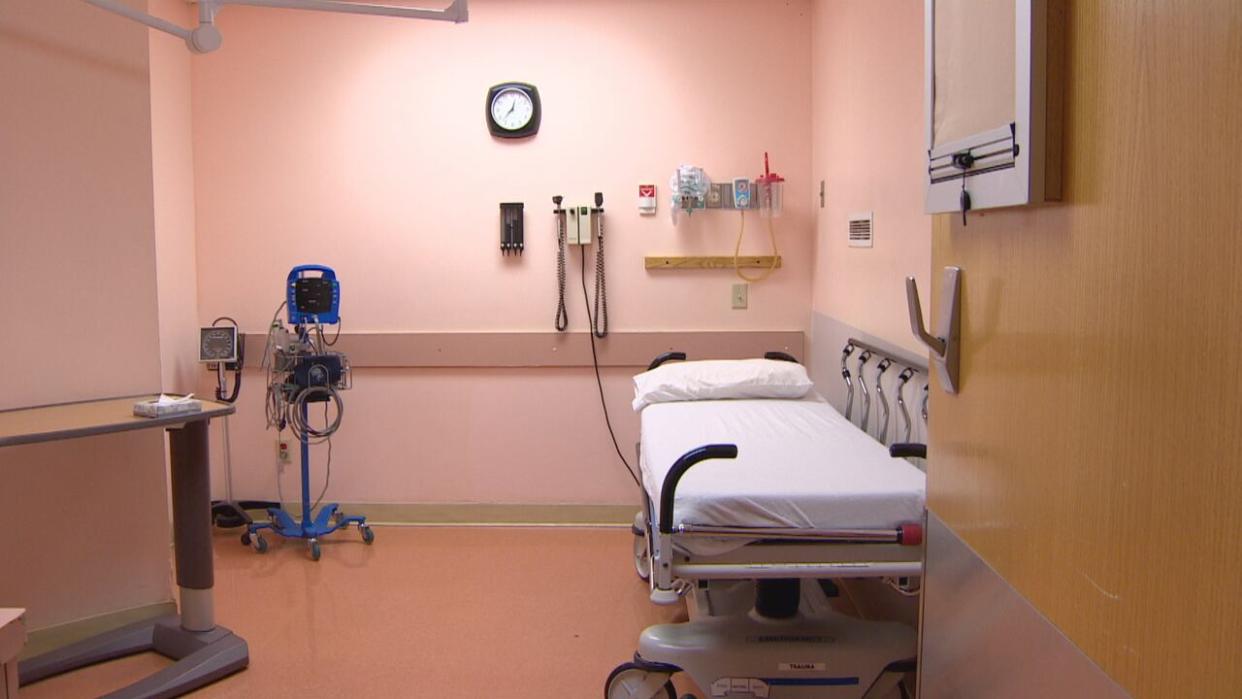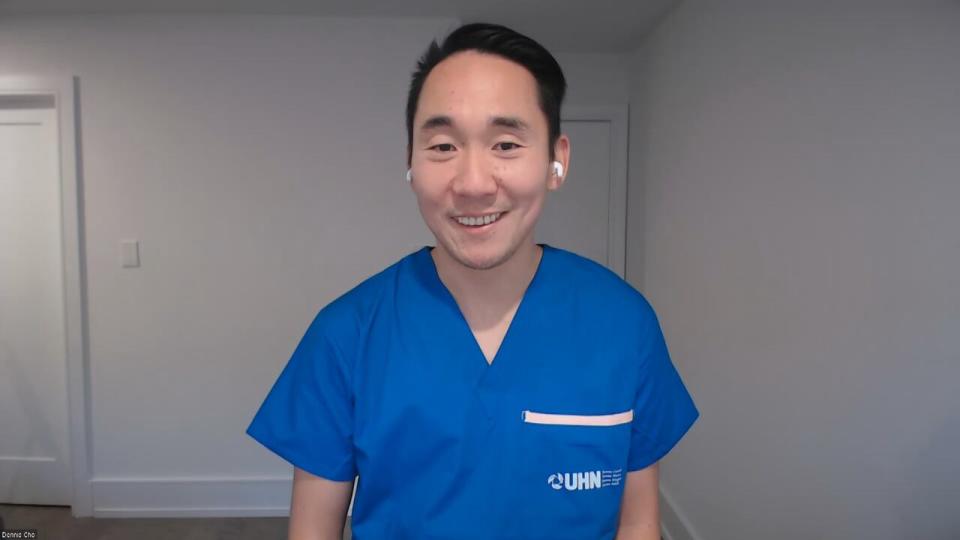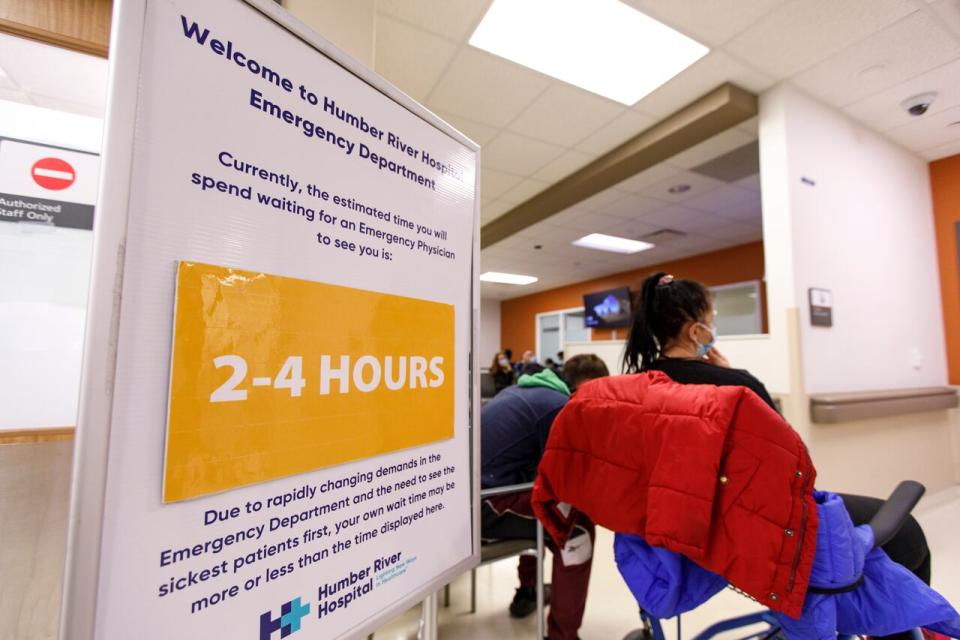GTA hospitals seeing spike in respiratory viruses in emergency rooms, doctors say

Some hospitals in the Greater Toronto Area are seeing a spike in the numbers of people coming in with respiratory viruses, emergency room physicians say.
Dr. Dennis Cho, deputy medical director of emergency departments at University Health Network (UHN) in Toronto, said on Monday that the wave of people with respiratory complaints in ERs marks the return of cold and flu season in pre-pandemic numbers.
Cho said flu and respiratory syncytial virus (RSV) numbers have doubled in the past two weeks at UHN, which includes Toronto General and Toronto Western hospitals. Now, when he goes to work, he said the emergency room is packed.
"There is still COVID around, but everything else is back, all the colds, the flus, the other viruses that contribute to cough and cold season. They're back and they're back with a vengeance," Cho said.
"I think we're only expecting numbers to go up. The holiday season appropriately is a time when people can get together. When people mingle, viruses mingle as well and they can transmit from person to person. We are anticipating a busy season."
Cho said while UHN is seeing young and old people who are sick with viruses, not everyone needs to go to the hospital. He advises people to judge the severity of their symptoms, urging people to go to the emergency room if they have any of the following: severe shortness of breath; inability to stay hydrated; and decreased level of consciousness, such as when people are confused or not acting like themselves.

Dr. Dennis Cho, deputy medical director of emergency departments at University Health Network in Toronto, says: 'There is still COVID around, but everything else is back, all the colds, the flus, the other viruses that contribute to cough and cold season. They're back and they're back with a vengeance.' (CBC)
Respiratory wave began in fall, doctor says
Dr. Sumon Chakrabarti, an infectious diseases physician at Trillium Health Partners in Mississauga, said on Monday that doctors are continuing to see a respiratory wave that began in late October or early November. He said some viruses that were not prevalent during the pandemic, such as rhinovirus or adenovirus, are resurfacing.
As for COVID-19, he said its severity seems to have dropped given immunity in the community.
"The people that we're seeing that are occasionally getting very sick from COVID, they tend to be quite elderly — we're talking in their 90s, or with very profound immune suppression, such as someone with a transplant or a blood cancer," he said.
Chakrabarti said the number of people going to ERs with respiratory complaints is not surprising.
"What we are seeing here is not anything different than what we saw in the years before the pandemic. It's expected at this time of year. We see stress on the health-care system."
As for the other respiratory illnesses circulating, Chakrabarti said he expects those to drop in January after the holiday spike.
"Things tend to look a lot brighter come the new year," he said.

A sign at Humber River Hospital in its emergency department in Toronto indicates estimated wait times. (Alex Lupul/CBC)
Toronto Public Health (TPH), for its part, sent home a notice to families in the Toronto District School Board on Friday on ways to reduce the spread of viruses over the holidays. TPH recommends people:
Get vaccines for which you are eligible as soon as possible at a participating pharmacy or your primary health care provider to prevent serious illness.
Wear a well-fitted, high-quality mask in indoor public settings if you are at higher risk of getting very sick.
Stay home when sick or if you have symptoms of illness, even if they are mild.
Wear a mask for 10 days after symptoms begin to protect others at home, school and work.
Wash or sanitize your hands often.
Cover coughs and sneezes with an elbow or a tissue.
Clean high-touch surfaces often.
According to the City of Toronto's integrated respiratory diseases dashboard, which provides numbers on confirmed and probable COVID cases and confirmed influenza cases reported to TPH, there were 258 influenza cases from Dec. 3 to Dec. 9 and 152 influenza cases in the previous week from Nov. 26 to Dec. 2. The dashboard indicates there were 838 COVID-19 cases from Dec. 3 to Dec. 9 and 827 cases in the previous week from Nov. 26 to Dec. 2.
There were 30 COVID-19 institutional outbreaks from Dec. 3 to Dec. 9 and 17 institutional outbreaks from Nov. 26 to Dec. 2.


